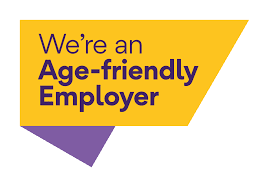Russam Frontline 15: The SSB Model from Russam Interim & Search
Jason Atkinson, Managing Director, Russam. September 2025
“Life is really simple, but we insist on making it complicated.” — Confucius
I joined Russam in September 2005 – 20 years ago this month! – and along with our founder Charles Russam we published a simple, practical help area on our website for our Interim Managers. It was there to address the problems of becoming an Interim Manager; that it is difficult to find out exactly how to make it work well at the outset. The reality is that it is a volume sales process to find the client work and also a quality one. The main premise being that an Interim Manager is not an individual. An Interim Manager is a business – a small business – a serious small business though you might be the only person working for the business.
In developing yourself as a Serious Small Business, we would suggest to you that the answers lie in:
1. Considering why Interim might be an attractive career route
2. Defining your ‘product’ and getting organised
3. Knowing the marketplace and key trends
4. Getting the work and
5. Being good at what you do
1. Why Interim?
If you are consider Interim Management then you must be convinced it is a viable and exciting option. The UK market is much more mature now (when I joined the business 20 years ago we were still pioneering and the pool was c4,000 and what I would call “serial interim managers”) and executives come in and out of Interim Management; I think the rules have changed a great deal and the Covid-19 pandemic has played its part.
It is key to look at the concept of Interim through the buyers / our clients who are currently navigating very tough conditions:
Availability – Interim Managers are often available immediately, whereas typically it could take a minimum of four months to hire a permanent employee serving a notice period.
Immediate results – Unlike a permanent employee who is typically given time to settle in, the interim manager will start delivering results immediately, identifying quick wins and building relationships rapidly. They “hit the ground running” with no more than a five-day honeymoon period.
Flexibility “Try before you buy” .Many interim managers end up on the payroll, though this would not have been the original aim. An assignment enables both parties to try each other out before committing to a permanent relationship. It could avoid a costly mistake on the wrong individual.
Interim managers are cost-effective, compared to the permanent C-level individuals of an organisation, interim managers are cost-effective. Interims are only getting paid for the days that they work and do not come with the additional costs of pension, sick pay, etc. Here, all the invoices are based on the fee per day spent working on the assignment, and performance is tightly measured.
Experience Interim managers offer instant experience and capability almost always one level above the job requirements. They know what best practice looks like and may even have had a recent assignment at a competitive organisation. They can provide much needed stability during difficult times.
Interim managers have great project management skills – They can get on with implementing things: Strategy, relocation of a company’s factory, a start-up project, closing down of a branch or division, downsizing or restructuring.
2. Defining your product:
The narrower and more focussed your ‘product(s)’, the easier it is to sell and the easier it is to identify your target market – those organisations (and the executives within those organisations) who are most likely to want to buy your ‘product’. I can speak for the Russam consultants when I stress how many impressive CV’s we see that state they are a CEO, CMO, Transformation Director, Change Agent, Coach, AI evangelist etc. Impressive but we find it difficult to really understand (at this initial point of engagement) what they are best at and the “jack of all trades” quote comes to mind.
You can get set-up quickly to undertake Interim assignments. You can have a limited company set up in mins and maybe a little longer to set up a business bank account. Your first “gig” might come very easily e.g. from a great contact or your last boss. This happened for me actually; one minute I was being made redundant from my global insurance firm and the next I was an Interim for a subsidiary company that we had recently sold off. I knew the people involved and it was straight-forward but the second and third assignments were much tougher to land; ironically I joined a firm providing Interims!
Getting organised is key for long term success and multiple projects. Your own Serious Small Business, like any business, needs to have all the functions and levels of activity necessary to succeed. It needs a business plan covering the following areas:
• Business planning & Strategy
• Marketing including the use of Linked-in and AI
• Selling
• Accounting and Financial and Personal Financial Management
• IT / Technology – this might include an app to book appointments e.g. Calendy
• HR & legislation/regulation e.g. IR35
• Operations
3. Here is some market information:
• Between 40% and 45% of all Interims get their assignments through providers like Russam.
• And about 60% of all Interim Managers are on assignment at any one time.
• There are about 30,000 Interim Managers in the UK but there are many others on the margins including many executives not known to Providers. Russam has 27,000 executives in the talent pool tagged as Interim. We don’t include high-level IT contractors for example.
• The industry is worth about £2bn and there are about 40 Interim Provider firms that, in our opinion, understand our market. The IIM (Institute of Interim Management lists 60, actually they had over 100 a few years ago, but we don’t recognise some of these firms. New Providers come and some go and many other professional organisations – primarily search and selection firms – operate opportunistically. Not to be ignored, but not worth as much time as more serious players.
• There are several top global interim networks now and I would highly recommend looking at WIL Group (Worldwide Interim Leadership) that we co-founded in 2014 – www.wilgroup.net
• The average daily rate to the Interim Manager is £894 and average number of days working in a year is 133 (this is down about 20% from 2024)
• The average age is 54 and still quite male dominated at 75%.
• Experience is key; 44% of Interims have been doing it for +10 years
• The Top sectors (note overly 72% private sector in 2025):
o Financial Services – 25%
o Business and Professional Services – 21%
o Tech/Telecoms – 21%
o Manufacturing & Engineering – 17%
o Local Govt – 16%
o Healthcare – 15%
o Private Equity – 14%
• And what type of work are they doing? The big four are: business change and transformation, finance, project management and general management – leadership roles. But there are lots of roles out there in areas such as compliance, marketing, HR and tech/AI.
• Interestingly 70% of the Interims on our books have only done “Outside IR35” assignments but we envisage an increase in “Inside” and we are partnering with the best panel of Umbrella companies if this does happen (to be honest I see this is a secondary concern – our clients still need interim talent and that is what we provide).
Trends in our Sector:
Interim is the top slice of the UK self-employed population. In total this has been growing nicely and will continue to do so in the long-term. It peaked at over 5 million before the Covid-19 pandemic and then fell sharply as people dropped out of work completely; but now around 4.5m driven by more individuals launching themselves into businesses (hopefully Serious Small Businesses!) or increasing their existing ventures.
Today’s drivers are the beginnings of critical mass, good people coming into the market and lifestyle issues. Clients falling for its immediacy and flexibility (like interim-to-perm) will keep coming back. This includes the increased taxation brought in by the Labour government and the Employment Rights Bill; all things that make hiring permanently a little less attractive. But our sector is not “buoyant”, with slow GDP growth and slowing investment there is concern for any kind of spend. A recent Russam poll showed that 15% of our Interims are positive about the outlook for work and 58% are negative. I can see these stats improving in the Autumn/into early 2026.
Internationally, we have seen the arrival of a new US President who is single-handedly disrupting the world economy and making it even more difficult to forecast the direction of travel with a lot of certainty. The USA however, is not the only nation holding elections in recent months and our own is busy trying to negotiate trade deals which always seem to be almost there, but never quite yet buttoning down the details, where the devil lurks.
The economy moving into 2026 . . . Who knows? The experts don’t! Whilst the self-employed sector and concepts for flexible resourcing continue to grow downturns in the economy usually mean downturns in Interim Management volumes except at the beginning and at the end. Oversupply in professional services is a growing problem, we think. I regularly check the KMPG/REC survey and it is hard at the moment to see anything but a soft market: https://kpmg.com/uk/en/media/press-releases/2025/09/kpmg-and-rec-uk-report-on-jobs-august.html
One trend is “fractional management”; according to an article in the Times, the LinkedIn profiles mentioning fractional leadership has rocketed from 2,000 in 2022 to 110,000 last year.
Please read more article on Fractional – https://russam.co.uk/russam-frontline-13-whats-all-this-fractional-about/
4. Getting the work.
This goes back to section 2 and getting organised. There are no exact rules but, if you want to win Interim project assignments, then you need to be self-directed, have a plan, understand the market dynamics and stay relevant. As for Sales, Networking (targeted) still works best and the effective us of Linked-in:
We would naturally like to work with you and put you into a rewarding assignment; we believe in long-term relationships. Saying that we would recommend that you register with other Interim Providers – take a look at the IIM which is a great resource for Interims and our industry (https://iim.org.uk/). Perhaps register with 30 or 40 of the providers but try to get close and meet 5-6 in person. For example, if Russam is one of these provider firms, then research the key consultants in the Russam team and linked-in with them and ask to meet the relevant team members. This might start with attending a webinar or networking event in London.
Linked-in is increasingly a powerful tool and our team uses it every hour of the day; one tip is setting yourself up to offer “services” and we recommend you pay for a premium service. Ensure your linked-in profile and CV reflect that fact that you are offering a service and that you are “open to work”. Even without a sequence of interim assignments under your belt, you can position yourself as someone that can
Be sure to check out the Russam Guides to Interim (we wrote this to help our clients but everyone can learn something from it) and our IR35 Guide also:
Please read our document: Twenty Things to Consider at Client Meetings
Finally, the best trainer of future Interim Management stars is Simon Berry and he has put thousands of senior executives through workshops. You might want to reach out to him: https://www.linkedin.com/in/simonberry-performancecoach
5. Being good at what you do
None of this is easy …. particularly for those with no sales or similar backgrounds – but the nearer you get to the ideal the more it will work for you. As an Interim Manager, you need to make the running. You need to be in control of your own working life. Those who say that this approach does not work – tell us what works better (and don’t say networking because you ought to be doing that as well!). Adopt the attitude that if it is not working it is you who are not doing it properly (properly means quality and volume). You also need some luck.
Being in control means, we would suggest:
• Constantly looking outwards for opportunities.
• Making new contacts all the time and exploring how mutual benefits might be created.
• Continuously learning new things about your own professional ‘product’, relearning things you know already and practising what you do know. (If you think you know enough, it’s time to pack it in!). We recommend putting aside a % of your yearly revenue for your own training and development maybe 5%?
• Regularly find out what people really think about you! Are you likeable? Do you look good? Do you listen? Are you really good at what you do? If you’re barking up the wrong professional tree or clinging to the wrong professional wreckage, how would you find out? Do you need to change and can you change?
• Have some great referees ready and references/testimonials especially on your linked-in page
• Developing some support activities that you can work with during downtimes (Eg: writing a book, articles, etc., lecturing, Charity work, M&A fringe work, etc.)
• Keeping a balance in your life. If running your own serious small business becomes an all-consuming obsession (particularly if you are not making enough money) and you have no time for anything else, your performance will deteriorate. I know many Interims that haven’t taken a day off for 2-3 years; this is unhealthy and goes back to your plan and how many days you are budgeting to work in the year; as you become more experienced and established with your business then you will have more control.
And finally, this is how Russam might be able to help:
Check out the Russam team: https://russam.co.uk/team-members/
Register with us for Jobs and the weekly Thrive Jobs Newsletter: https://russam.co.uk/
Follow us for insights and jobs: https://www.linkedin.com/company/russamhttps://www.linkedin.com/company/russam
If you can identify business opportunities or looking for a business partner or to create a team or to fill out a management team, etc., let’s see what our extensive network can come up with through the Russam Community. Similarly, if you want to sell or buy a business for yourself, a colleague or a client, let’s see how we can help with our extensive network and contacts.
Keep an eye on the Events Programme on our website which is continuously updated and aimed at Interims. If you come across something that you think might make a useful inclusion in The Associates’ Programme, let us know.
Whatever you so, wherever you are don’t forget that the Russam Business Introduction Scheme pays you 50% of our gross margin up to £2,500 if you introduce an Interim Management or Permanent opportunity that turns into a job for us. If the introduction is clearly of a substantive nature we will come to a different arrangement and will generously share in partnership with you. Much depends, of course, on the nature of the assignment and there are clearly some instances that represent some conflict of interest but please do talk with any of us at any time. This may well be the time when your own networking provides you with an unexpected windfall!

Contact us
Call us on 07930 356305 or email HQ@russam.co.uk








